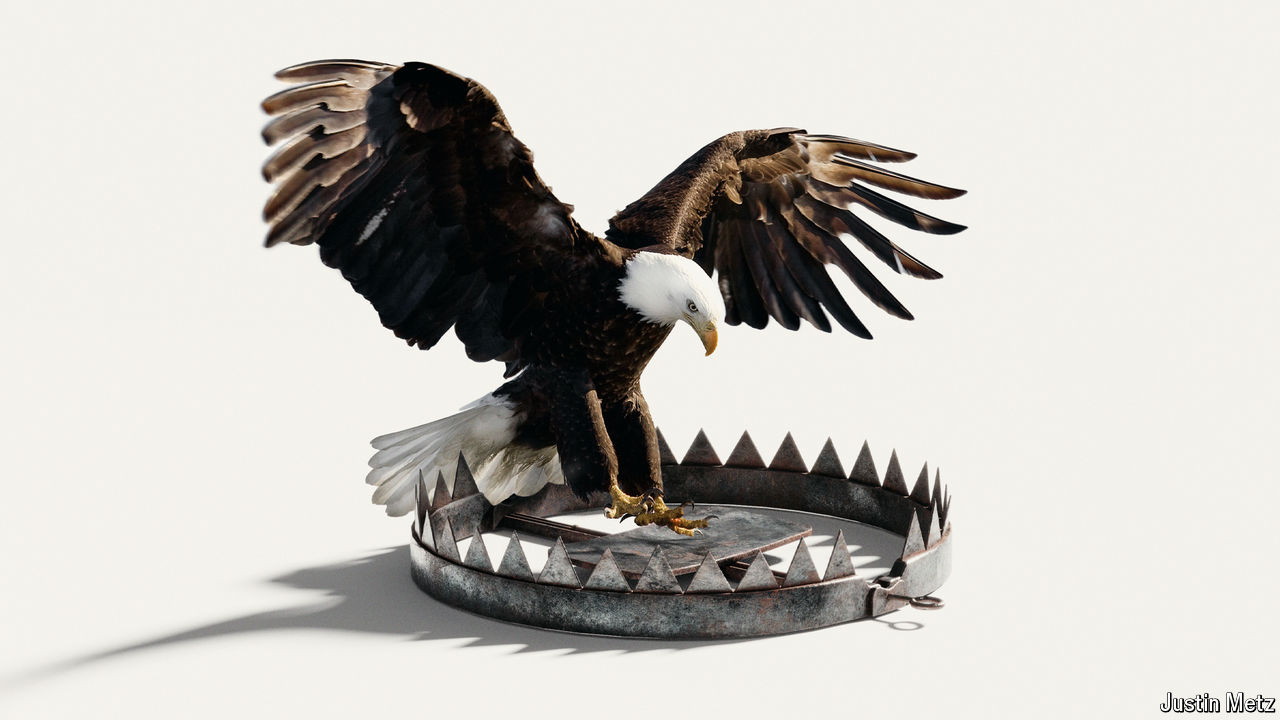
NOVELISTS HAVE long imagined, and warned of, the threat to liberal places from totalitarian rule. British writers of the 20th century, including George Orwell, Aldous Huxley and Robert Harris, won mass audiences for their depictions of anti-democratic dystopias. All owed a debt, in turn, to a disillusioned Russian revolutionary, Yevgeny Zamyatin, whose novel “We” described a dictatorial “OneState” of the 26th century, in which humans become mere “Numbers”—automatons who prioritise efficiency over freedom. His book, published in the early 1920s, provided an inspiration for Orwell’s “1984”. Authors across the Atlantic have fretted no less than Europeans about threats to democracy. Margaret Atwood, a Canadian, imagined America becoming a repressive religious republic, Gilead. Sinclair Lewis, who wrote soon after the Nazis were elected to power in Germany, told a story of the rise of populist, fascist government and the failures of ordinary American citizens to resist it. Phillip Roth picked up that theme seven decades later. Read these five novels as a chilling introduction to the idea of democracy under threat in America.
Margaret Atwood’s best known book was published in 1985. Reviewing it soon afterwards,The Economist found it to be “polished, ingenious–and terrifying”, and a “wry vision of life in 21st-century America”. Pollution and sexual disease have taken their toll. Fertility has plummeted. The Gilead Republic has become a police state run by the Commanders on lines laid down by the book of Genesis. The few fertile women are rounded up to serve as breeders. If they fail, they die. If they succeed, they are allotted to a new master. Sex is strictly impersonal, enacted in the presence of the Commanders’ wives. The narrator is Offred (of Fred: the handmaids are named after their owners). Her book is a secret record of atrocities.
